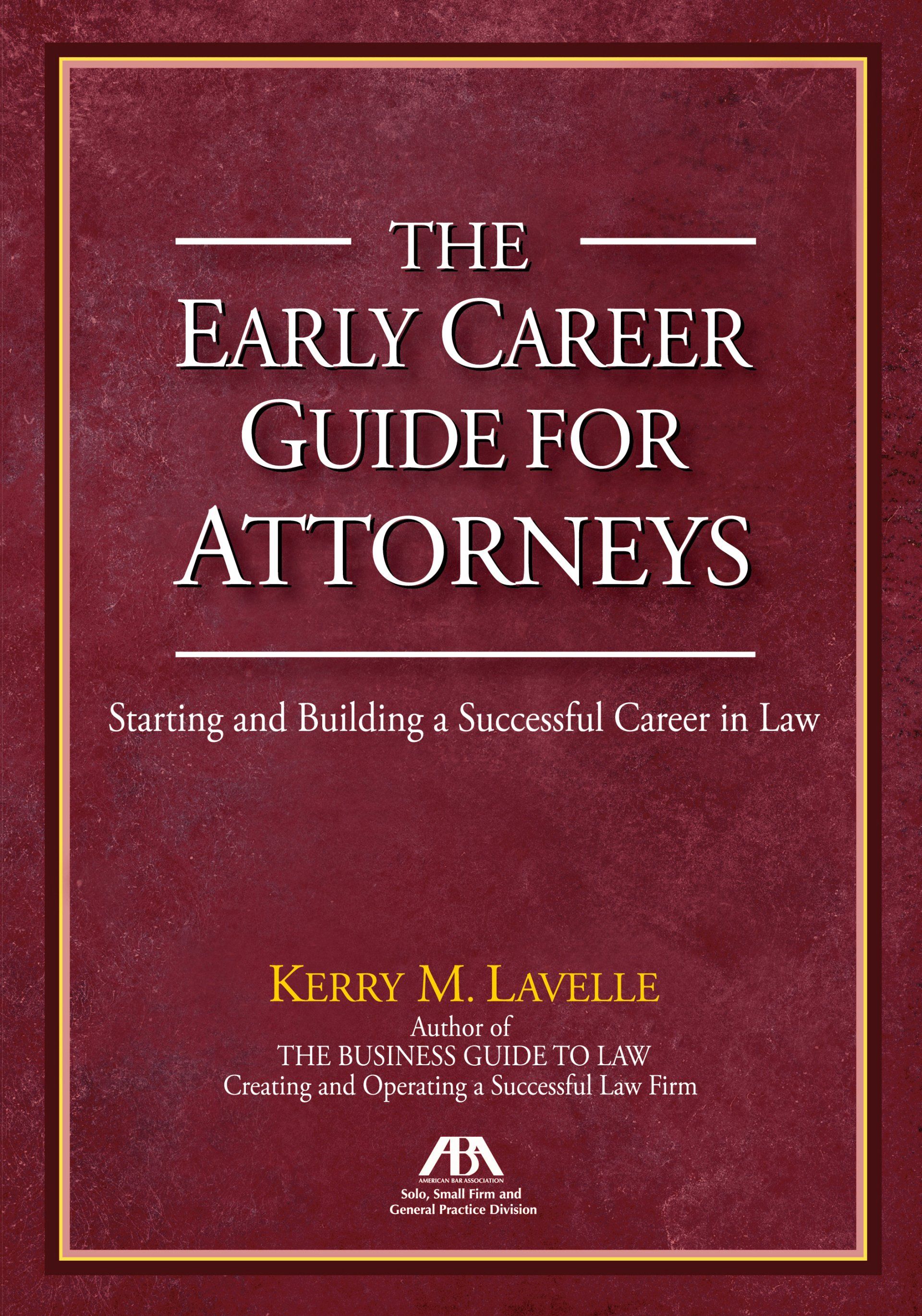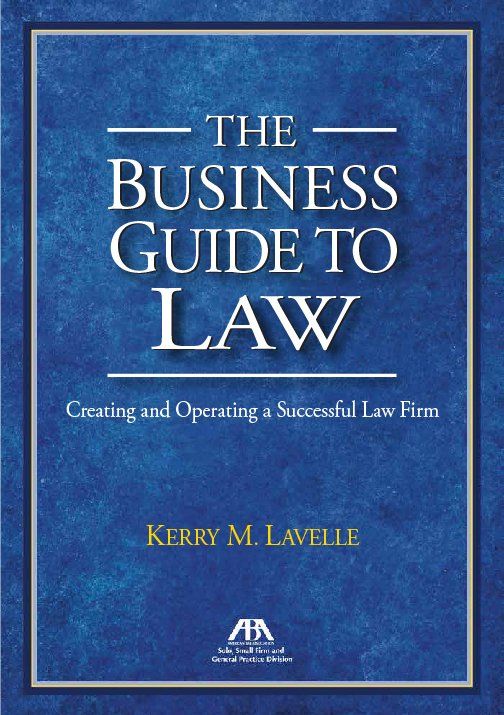LAVELLE CONSULTING
Where lawyers go for business advice
While any successful law firm must feature skilled legal practitioners, not all include people skilled in running a business. And make no mistake, a law firm is a business.
At Lavelle Consulting we have encountered all types of business and operational issues during our quarter-century of law practice management and through a diligent effort to build best practices, we now offer our experience to other law firms in need of a critical review of the obstacles slowing or blocking their success.
Lavelle Consulting provides actionable reports to law firms facing issues such as cash limitations due to billing and collection issues, organizational structure and workflow impediments, marketing and lead generation, law practice culture, mergers and acquisitions, managing workloads during periods of rapid growth, and the need to prepare the next generation of partners through comprehensive succession planning.
Our Services
- Billing and Collecting Discipline
- Document Libraries
- Firm Audits
- Fixing the Underperforming Practice
- Hiring Five-Tool Attorneys
- Lawmetrics
- Marketing and Lead Generation Systems
- Partner Retreats
- Successful Business Plan Development
- Succession Planning
Lavelle Consulting Posts
Lavelle Law News and Events

Shareholder Steven Migala provided expert witness testimony to a Taft Stettinius & Hollister LLP trial team, assisting them to obtain a jury verdict in Cook County for its client, Michael Eggum, who sued his former restaurant business co-owner Ryan Kowalis for fraud and breach of fiduciary duty regarding Eggum’s investments in the restaurant co-owned by Kowalis. The evidence at trial included Mr. Migala’s expert opinion/report and testimony concerning the interpretation of key contract documents.
Full article: https://www.dailyherald.com/submitted/20191111/attorney-kerry-lavelle-speaks-at-arkansas-bar-association-event
While a “retreat” may be becoming an archaic term, successful professional service firms have “off-site meetings” to get away from the ambient noise of the office and to truly focus on their business without getting distracted by the practice of law. There is no one great format or outline to use, but the following categories should provide a thought provoking starting point for you to be able to focus on the previous year’s successes and challenges, and outline goals for the new year. Some General Rules Reserve a room with a white board so that ideas can be set forth on the board, visually examined, and discussed. Shut down cell phones and any laptops that are open should be used solely for taking notes, not checking emails. Take a short break every 60 – 90 minutes. If the budget allows, hire a facilitator to keep the group on task. Core Values A good place to start any partner retreat is reviewing your core values and examining the previous year to see if the law office was true to its core values. If you have never thought through your core values or never tried to compose a mission statement, it is a good topic to start your off-site meeting. Answers to the many questions that will be presented during the retreat emanate from your core values. Review the Previous Year Pull out your notes from the previous year’s retreat or general firm meetings where you set forth goals for the year. Check all of your objective goals (new clients, profitability, top line growth, etc.) and view how you did. Examine and discuss your failures or shortcomings. These discussions should focus on what controllable aspect of the firm contributed to, or adversely affected, the above discussion points. Has something in your marketing or client management system worked? Then invest time and money in that to make it better. If there was a lack of oversite or a failure by management that created an unwarranted risk or liability for the firm, that shortfall needs to be shored up, and processes need to be implemented. Everyone around the table needs to agree that such failures cannot happen a second time. Financial Review Whether it be reviewing your previous year’s tax return or year-to-date financial statements, take a hard look at the financial performance of the firm in the previous year. Discuss it and make sure all equity partners understand the financial position of the firm. Three Biggest Concerns Take five minutes of quiet time for each partner to write down their biggest concerns and challenges of the firm and then list those on the white board. Lead a discussion on those concerns and focus on the three items that were identified the most by partners and discuss on how to minimize the effects of these concerns with controllable conduct of the partners and of the firm. Document the new year actions committed to be taken by the partners to mitigate those concerns. Three Biggest Opportunities Similar to the above exercise on concerns, take five minutes of quiet time and have every participant write down their three biggest opportunities for the firm. Then, post those on the white board, and focus on the three most frequently listed opportunities. Identify a tangible game plan on how to exploit those opportunities for the benefit of the firm. Be specific – certain individuals should lead those committees or initiatives to allow the company to take advantage of those opportunities. Team Building Activities Depending on time, money, and venue (outside accessibility?) there are a myriad of games that you can play testing an individual or group’s ability to be creative, take direction, and overall work together as a team. All the games and challenges require different levels of participants, budgetary limitations, time and space. Nonetheless, below are a few websites that, if you are inclined to have some fun, provide some ideas for such team building challenges. You can use some of the ideas listed, or create your own hybrid versions of the games listed on these sites: 1. https://www.tinypulse.com/blog/team-building-activity-trust 2. https://www.huddle.com/blog/team-building-exercises/ 3. https://www.wrike.com/blog/team-building-games/ 4. https://www.scienceofpeople.com/team-building-activities/ 5. http://www.innovativeteambuilding.co.uk/ 6. https://www.snacknation.com/blog/team-building-activities-for-work/ Human Resource Review At the off-site meeting, it is a good opportunity to allow everyone to speak freely not only about each other’s performance over the course of the previous year, but also about those subordinates and support people that are not at the meeting. You often find candid comments that are helpful to advance the firm’s interest but beware, you can hear some that can be detrimental. It is unlikely that there will be 100% agreement on any individual employee, but it is important that the discussion be lead in an open and honest way where people are not only expressing their views about employees, but also listening to the views of others in the room. Compensation Review Discussion More likely than not, the discussion on subordinates associates will include consideration of salary, compensation and value to the firm. The intent of this section is to revisit the compensation structure of management, partners, and equity partners. Whether your firm compensation in managed by one benevolent leader, a compensation committee, or an already established objective criteria for management compensation, this is the time to revisit it and, if the system is working, it can be dismissed quickly. If the system is not working, this is the time to discuss it, and come up with tangible plans to fix it. Conclusion In conclusion, there is quite a bit to discuss when reviewing the health of the firm. Further, it is critical that management works on the business of law, not just the practice of law. Management and partners need to feel that they have influence in the management of the firm, that they are listened to and that their input will be reflected in the management of the firm. There is no way a deep discussion can happen around the conference table in the office when people are coming and going to meetings, court appearances and other obligations. An off-site retreat is a great way to get everyone to turn off their cell phones and law firm email, and talk about how to improve your firm. For any further discussion on the benefits of an off-site partner retreat, please reach out to Kerry Lavelle at klavelle@lavellelaw.com to schedule an appointment. Kerry Lavelle is the author of The Business Guide to Law: Creating and Operating a Successful Law Firm and The Early Career Guide for Attorneys: Starting and Building a Successful Career in Law published by the American Bar Association. They can be found on the ABA website at: http://bit.ly/1J1p0Aa and https://bit.ly/2NQkYSU . He grew his solo practice to a 31-attorney firm, accumulating numerous awards and commendations along the way for his legal work and community service. He is a frequent speaker at bar association seminars and conferences on law office management, and has served as an adjunct professor for business, economics and law school classes, and has served on boards for the Northwest Suburban, Illinois and American Bar Association.






